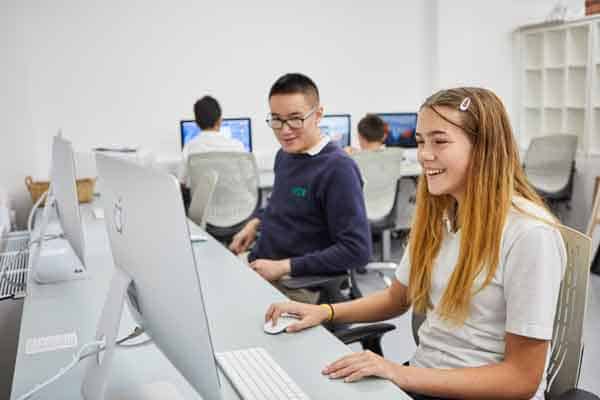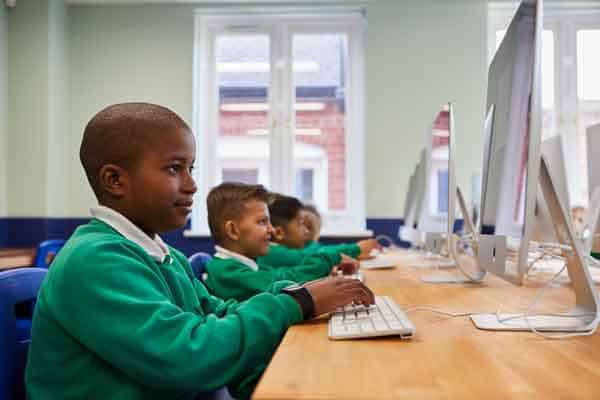Computer Science
Computing is made up of three main components - Computer Science; Digital Literacy; and Computational Thinking.
Computational thinking is fundamental to computer science. It is a particular type of approach to problem-solving that often finds expression in software. Students learn and use a range of abstract design tools to explore real world concepts, and use this knowledge to construct creative and functional software solutions.
Digital literacy is the component where students learn about everyday technology and digital media, how what we treat as information can be input, stored, processed and output from computer systems. Students get to demonstrate knowledge, skills and creativity using software to create graphics, music, presentations, websites, data models and well thought out documents.
Computer Science teaches students computational and algorithmic thinking, and how to manage real life problems. The programme of studies includes coding with Scratch block based programming, web pages using HTML, CSS and JavaScript, SQL for database management, Python and C# is used for text based programming.


The HSW computing curriculum is divided into five strands (Information Science, Data processing, Computing hardware, Software, and Digital literacy) with each strand having levels of proficiency (Foundation, Intermediate, Advanced, Elevated, and Guru) designed to challenge all students from KS1 to KS3. Our curriculum is designed to leverage students' curiosity by setting world-of-work style or inquiry-based activities. Over time, students are better able to explore, create and repurpose digital artefacts for specific audiences.
At KS4 students study the OCR GCSE (9-1) Computer Science course (OCR). For more information about the specification see: https://www.ocr.org.uk/Images/558027-specification-gcse-computer-science-j277.pdf
The department is innovative and utilises new technology to support learning including the Raspberry Pi, VR/AR projects, BBC micro:bits and robotics both in the main curriculum and our co-curricular activities. There is a thriving Minecraft club, and a Computing club which organises hackathons and various other events, competitions, and blog writing.
